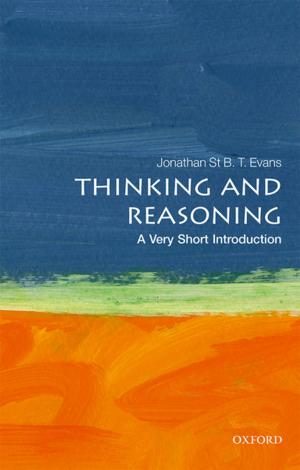The Beauty of Physics: Patterns, Principles, and Perspectives
Nonfiction, Science & Nature, Science, Physics, General Physics, Mathematics| Author: | A. R. P. Rau | ISBN: | 9780191019890 |
| Publisher: | OUP Oxford | Publication: | September 25, 2014 |
| Imprint: | OUP Oxford | Language: | English |
| Author: | A. R. P. Rau |
| ISBN: | 9780191019890 |
| Publisher: | OUP Oxford |
| Publication: | September 25, 2014 |
| Imprint: | OUP Oxford |
| Language: | English |
The beauty of physics lies in its coherence in terms of a few fundamental concepts and principles. Even physicists have occasion to marvel at the overarching reach of basic principles and their ability to account for features stretching from the microscopic sub-atomic world to the cosmological expanses of the Universe. While mathematics is its natural language, physics is mostly about patterns, connections, and relations between objects and phenomena, and it is this aspect that is emphasized in this book. Since science tries to connect phenomena that at first sight appear widely different, while boiling them down to a small set of essential principles and laws, metaphor and analogy pervade our subject. Consider the pendulum, its swing from one extreme to the other often invoked in social or economic contexts. In molecular vibrations, such as in the CO2 molecule, the quantum motions of electrons and nuclei are metaphorically the pendulums. In electromagnetic radiation, including the visible light we observe, there are not even any concrete material particles, only electric and magnetic fields executing simple harmonic motion. But, to a physicist, they are all "just a pendulum". The selection of topics reflects the author's own four-decade career in research physics and his resultant perspective on the subject. While aimed primarily at physicists, including junior students, this book also addresses other readers who are willing to think with symbols and simple algebra in understanding the physical world around us. Each chapter, on themes such as dimensions, transformations, symmetries, or maps, begins with simple examples accessible to all while connecting them later to more sophisticated realizations in more advanced topics of physics.
The beauty of physics lies in its coherence in terms of a few fundamental concepts and principles. Even physicists have occasion to marvel at the overarching reach of basic principles and their ability to account for features stretching from the microscopic sub-atomic world to the cosmological expanses of the Universe. While mathematics is its natural language, physics is mostly about patterns, connections, and relations between objects and phenomena, and it is this aspect that is emphasized in this book. Since science tries to connect phenomena that at first sight appear widely different, while boiling them down to a small set of essential principles and laws, metaphor and analogy pervade our subject. Consider the pendulum, its swing from one extreme to the other often invoked in social or economic contexts. In molecular vibrations, such as in the CO2 molecule, the quantum motions of electrons and nuclei are metaphorically the pendulums. In electromagnetic radiation, including the visible light we observe, there are not even any concrete material particles, only electric and magnetic fields executing simple harmonic motion. But, to a physicist, they are all "just a pendulum". The selection of topics reflects the author's own four-decade career in research physics and his resultant perspective on the subject. While aimed primarily at physicists, including junior students, this book also addresses other readers who are willing to think with symbols and simple algebra in understanding the physical world around us. Each chapter, on themes such as dimensions, transformations, symmetries, or maps, begins with simple examples accessible to all while connecting them later to more sophisticated realizations in more advanced topics of physics.















